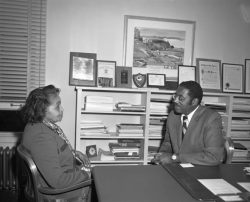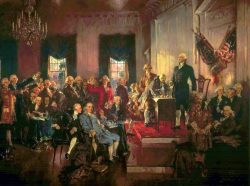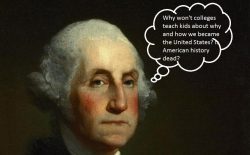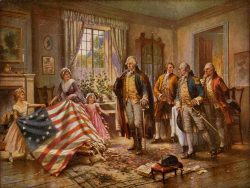
Editor’s Note: This article was originally published by RealClearPublicAffairs on March 3, 2022, and is republished here with permission. As part of its domination of cultural institutions, the far left decides who gets anointed as heroes. That leaves some of the greatest Americans forgotten, their lessons ignored. So another Black History Month has passed without a national recognition […]
Read More
The Pulitzer Committee has awarded Nikole Hannah-Jones a prize for her lead essay in The New York Times’ “The 1619 Project.” The news doesn’t exactly come as a surprise. It was widely rumored that Hannah-Jones was under consideration, which raised the tantalizing question of how the Pulitzer Committee might find its way the past […]
Read More
Earlier this year, the New York Times published the ambitious “1619 Project,” an effort to reinterpret U.S. history as one dominated by the legacies of slavery and racism—thereby, according to the Times, “tell[ing] our story truthfully.” The Project’s lead essay, from Nikole Hannah-Jones, set the agenda: “Conveniently left out of our founding mythology is the […]
Read More
On August 18, the Sunday New York Times included a section, The 1619 Project. It announced a goal unusual in journalism, reframing American history, “making explicit how slavery is the foundation on which this country is built.” The Times seemed to imagine that all the protestors were far-right conservatives, but one that caught our eye […]
Read More
A little more than a decade ago, I commented on the “re-visioning” of American history—the transformation of “traditional” sub-disciplines such as U.S. political, diplomatic, or military history to have them focus on the themes of race, class, and gender (and, now, ethnicity) that have come to dominate the field. A more recent development, documented by […]
Read More
This is an excerpt from the new ACTA report, No U.S. History? How College History Departments Leave the United States out of the Major. It reveals that fewer than 1/3 of the nation’s leading colleges and universities require students pursuing a degree in history to take a single course in American history. Read the full […]
Read More
The buzzword in education these days is “global.” Education reformers promise to prepare students for “global citizenship” with suitable work skills for a “global economy.” Where the word “global” ascends, the word “American” tends to fade. This is true in history as well as in ideas of citizenship beamed at the young. “Big History,” with […]
Read More
I previously wrote about the new AP U.S. History guidelines (APUSH). The guidelines generated considerable criticism—in so small part because they seemed intent on evading state guidelines regarding the instruction of U.S. history. Basically: the earlier guidelines heavily emphasized themes of race, class, and gender, at the expense of more “traditional” types of U.S. history […]
Read More
Patrick Deneen, professor of government at Georgetown and founder of Georgetown’s Tocqueville Forum on the Roots of American Democracy, spoke September 23rd at a luncheon in New York sponsored by the Manhattan Institute’s Center for the American University. The following is an excerpt. The full text will appear in the winter issue of The New […]
Read More
Edward J. Larson, Professor of Law at Pepperdine University and Pulitzer Prize-winning author will be appearing at ACTA’s Regional Meeting at the Mount Vernon Club in Baltimore in a program advocating the instruction of American History. Those in the area would be well-advised to stop by.
Read More